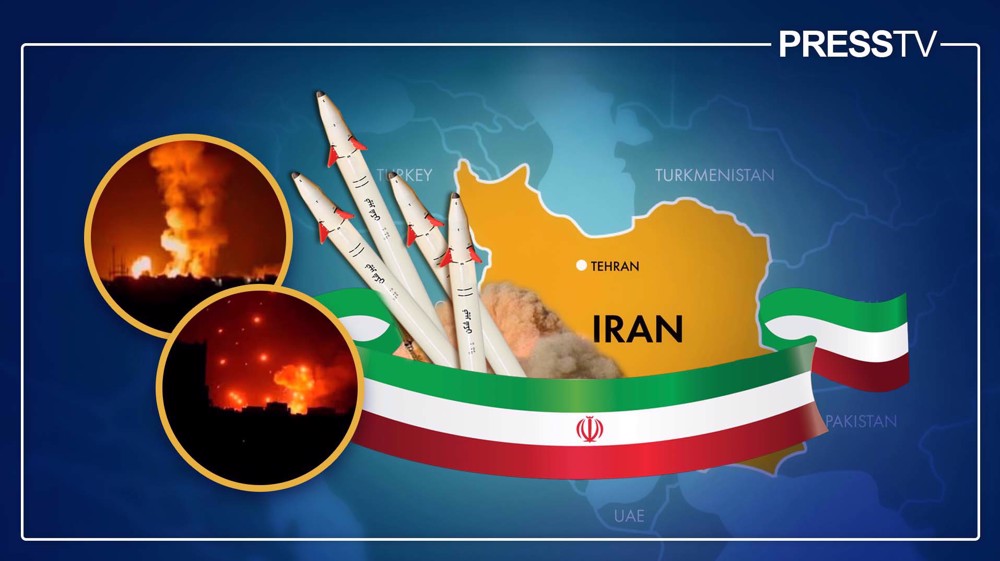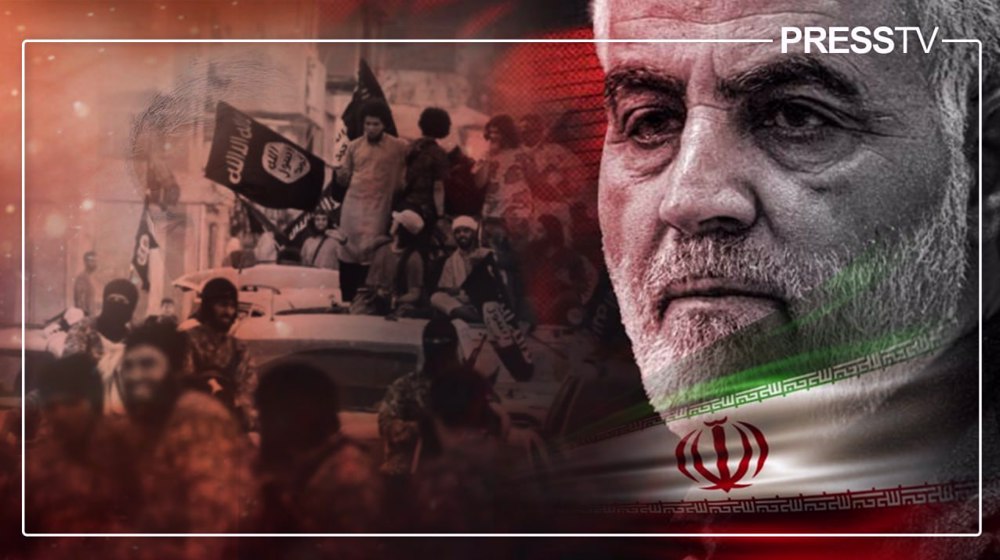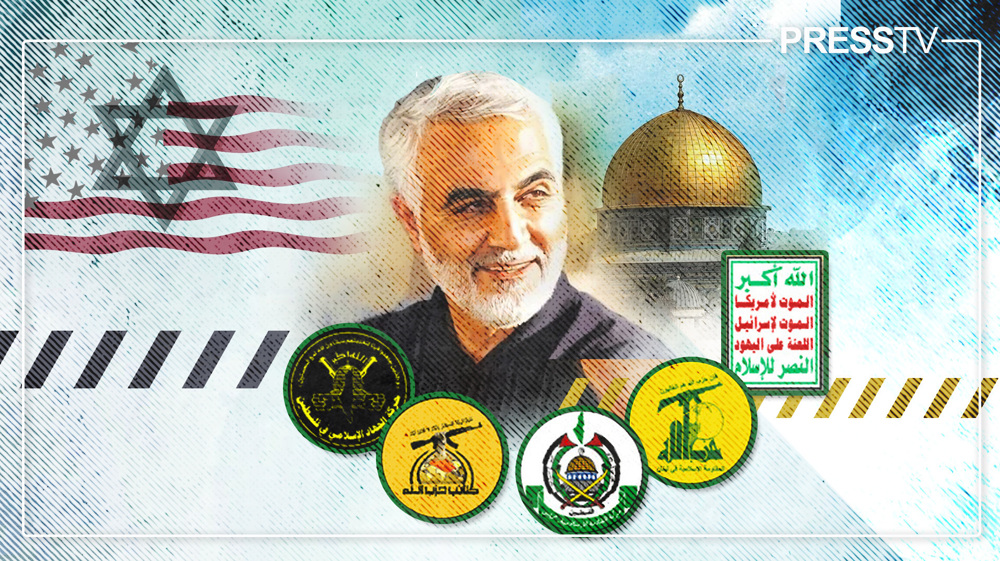Attacks on Zionist, Daesh bases in Iraq, Syria strategic necessity for Iran
By Xavier Villar
Late on Monday, the Islamic Revolution Guards Corps (IRGC) launched a series of ballistic missiles toward an Israeli spy center in the Kurdistan region of Iraq, while also hitting targets linked to Daesh terrorists in northern Syria.
In a statement, the IRGC said the attacks were in response to recent terrorist attacks in the southeastern cities of Kerman and Rask as well as the assassination of a senior IRGC commander in Damascus earlier this month.
A gathering of leaders and key elements associated with recent terrorist attacks in Iran were targeted in Idlib.
The attack in northwest Syria targeted terror training camps, a logistical support network, and a medical facility used by Daesh Takfiri affiliates, according to reports.
In Erbil, the capital of the Kurdistan Region of Iraq, IRGC missiles destroyed a Mossad spy base, which was involved in coordinating the recent assassinations of several IRGC and Axis of Resistance commanders, including Sayyed Razi Mousavi.
In the midnight attack, Kurdish oil magnate Peshraw Dizayee, owner of the Empire and Falcon Group, which reportedly facilitated oil exports to Israel, lost his life.
From a political standpoint, these attacks once again serve as a reminder that, as a regional power, Iran will not allow its capability to defend its autonomy and national sovereignty to be questioned or undermined.
As Iran's foreign ministry spokesman Nasser Kanaani said earlier on Tuesday, Iran respects sovereignty and territorial integrity of other countries but threats to its national security constitute a red line.
Monday night's attacks in Syria and Iraq were a strategic necessity for the Islamic Republic from two interconnected perspectives.
On one hand, Iran's response to Zionist aggression readjusts the balance of deterrence to an appropriate level. In other words, Iran had the obligation to react to the Zionist entity and its series of attacks to remind it that such attacks won't go unpunished.
On the other hand, the need to restore the balance of deterrence stems from Iran's obligation to safeguard its own ontological security from external aggression.
The concept of ontological security (Giddens, 1993) is understood as the sense of order, safety, and internal continuity of the identity of an individual or agent in an environment of constant change. This facilitates and motivates political action and choice.
From the perspective of ontological security, Iran feels threatened when its political behavior conflicts with the expectations associated with it. In other words, in addition to the need to restore deterrent balance, the Islamic Republic has to oppose the colonial mindset that seeks to naturalize the presence of foreign forces in the region.
The notion of "foreign forces" should not be considered from a geographical perspective but rather analyzed from a political-ideological standpoint.
This implies that it is not simply a geographical matter, as in the case of the United States and the United Kingdom, but also refers to the Zionist entity which, despite its colonial implantation in the regional geography, is considered an external illegitimate force.
In other words, Iran cannot allow the presence of Zionist bases in Iraq, both materially and politically. The same reasoning also explains the tension between Tehran and Baku due to the presence of Zionist bases in Azerbaijan.
It is also essential to highlight something that is often overlooked in analyses of the region, especially those focused on the Iranian response. The attacks underscore the complete readiness of Iran and other members of the Axis of Resistance to counter the Zionist-American plots.
This does not imply the Axis of Resistance in general and the Islamic Republic, in particular, are looking for escalation, but it indicates their complete readiness and preparation for any such eventuality.
Iran perceives the region from the perspective of its autonomy and the exercise of its sovereignty, something that, as mentioned earlier, is hindered by the presence of external forces in the region.
The need, therefore, to exercise that autonomy and sovereignty is contingent on the expulsion (both physically and politically) of these external forces.
Interestingly, analyses that argue that Iran's attacks represent "an escalation in the conflict" do not take into account that it has been the joint action of the United States and Israel, with the support of the United Kingdom, that has placed the region in its current turmoil.
Additionally, they may not understand that Iran's response, like that of the other members of the Axis of Resistance, is necessary to ensure there is peace and stability in the region and no outside interference.
At the same time, it is important to note that Iran's defense of sovereignty and autonomy is politically linked with the defense and autonomy of resistance groups like Ansarallah in Yemen or Hezbollah in Lebanon.
It is precisely this political connection that explains and shapes the Axis of Resistance.
Iran’s steel output up 9.2% y/y to 3.4 million mt in November
VIDEO | Venezuelan protesters demand US release President Maduro
Trump claims US will ‘run’ Venezuela in interim after kidnapping of Maduro
Trump says US will be ‘very strongly involved’ in Venezuela’s oil industry
‘Naked imperialism’: Netizens condemn US for attacking Venezuela and kidnapping its leader
How Gen. Soleimani fought terrorism and exposed the fallacy of West's 'war on terror'
Condemnations pour in after US bombing of Venezuela, kidnapping of Maduro
Gen. Soleimani represented resistance to interventionism in Global South: Analyst










 This makes it easy to access the Press TV website
This makes it easy to access the Press TV website